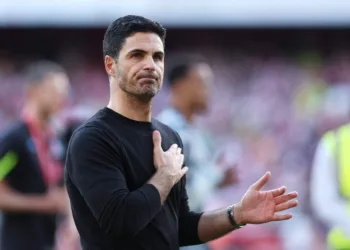In a landmark decision with both financial and sporting implications, Aston Villa have finalized a deal to sell their women’s team to V Sports, the club’s own holding company. This calculated move comes at a pivotal moment, as Villa seek to ensure compliance with the Premier League’s Profitability and Sustainability Rules (PSR) and navigate UEFA’s Financial Fair Play (FFP) landscape.

The decision mirrors a similar move made by Chelsea in 2024, underlining a new financial playbook being adopted across English football.
Table of Contents
Why Aston Villa Sold Their Women’s Team
According to sources close to the matter, Villa had been exploring this sale for over 18 months, largely driven by mounting financial pressure. After posting combined losses of over £205 million across the last two seasons, the club risked breaching PSR limits, which cap allowable losses over a three-year cycle.

By transferring the women’s team to V Sports—a company jointly owned by billionaire businessmen Nassef Sawiris and Wes Edens—Villa effectively recorded a profit on the sale. This, in turn, boosts the club’s balance sheet in time for critical PSR assessments.
| Season | Reported Losses |
|---|---|
| 2022–23 | £119.6 million |
| 2023–24 | £85.4 million |
| Total | £205 million+ |
Clubs can exempt spending on youth and women’s football from PSR, but profits from such sales still count positively in financial reporting.
The Growing Influence of V Sports
Originally founded as NSWE, V Sports was rebranded in 2021. Beyond its full ownership of Aston Villa, the company holds:
- 29% stake in Vitoria S.C. (Portugal)
- 25% stake in Real Union (Spain)
- Partnerships with ZED FC (Egypt) and Vissel Kobe (Japan)

This diverse portfolio not only boosts the brand’s global footprint but adds credibility to the women’s team deal—especially with U.S.-based third-party investors now entering the fold.
| Club/Partner | Country | Stake/Partnership |
|---|---|---|
| Aston Villa | England | 100% ownership |
| Vitoria S.C. | Portugal | 29% ownership |
| Real Union | Spain | 25% ownership |
| ZED FC | Egypt | Partnership |
| Vissel Kobe | Japan | Partnership |
PSR Compliance: A Growing Challenge
Villa’s financial maneuver draws attention to a broader challenge: clubs must balance competitive ambitions with strict financial oversight. By offloading the women’s team to a related entity, Villa:
- Avoided selling first-team stars
- Recorded immediate profit
- Gained breathing room for future PSR cycles (2025–26 and 2026–27)
It’s worth noting that UEFA will not allow intra-group profit to count toward its own financial rules. Still, the Premier League’s acceptance of third-party involvement (from U.S. investors) strengthens the legitimacy of the valuation.
Following Chelsea’s Blueprint?
In June 2024, Chelsea transferred their women’s team to BlueCo—their ownership group—for nearly £200 million, later selling an 8% stake to Alexis Ohanian, co-founder of Reddit. This valued the team at £245 million.

While the value of Villa’s sale remains undisclosed, the structural similarities are impossible to ignore. Both clubs utilized intra-group sales as a strategic PSR solution without offloading key players.
UEFA FFP Still in Play
Despite the PSR boost, UEFA remains a separate hurdle. The European body has been in talks with Villa regarding potential breaches. However, they typically issue fines rather than sanctions that affect sporting performance.
For now, Villa are safe—but the spotlight remains.
Read More: Reinildo to Sunderland: Premier League New Boys Secure Atlético Madrid Star in Two-Year Deal
FAQs
Why did Aston Villa sell their women’s team to V Sports?
To generate profit and help comply with the Premier League’s PSR rules amid financial losses.
Who owns V Sports?
V Sports is co-owned by American billionaire Wes Edens and Egyptian billionaire Nassef Sawiris, who also serves as Villa’s chairman.
Does this sale affect Aston Villa’s UEFA compliance?
No. UEFA does not count intra-group profits in FFP calculations, although the club remains in ongoing discussions.
Are other clubs doing this too?
Yes. Chelsea executed a similar move in 2024 by selling their women’s team to BlueCo and later selling a stake to Alexis Ohanian.
Will this impact Villa’s women’s team operations or players?
No operational changes have been reported. The deal is primarily financial and structural.








